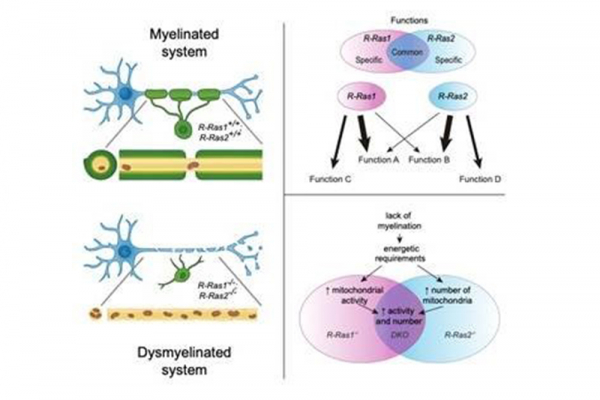A team of researchers, involving UAH, discovers how lack of myelin affects neurons
Myelin is a substance that protects the axons of neurons, which are responsible for sending nerve impulses to other types of cells.
A team of researchers, including members of the Universidad de Alcalá, have published in the journal 'Glia' the consequences that myelin deficit has on neurons in the central nervous system. Specifically, the work describes the function of two essential proteins in the interaction between the oligodendrocyte and the neuron: R-Ras1 and R-Ras2. This discovery could be very useful to advance in the specific treatment of such serious myelin diseases as multiple sclerosis or optical neuromyelitis, which affect so many people in the world.
'These proteins control the survival and differentiation of oligodendrocytes, the cells responsible for the myelinization of the Central Nervous System. Their loss causes neuroneal metabolic alterations that lead to axonal degeneration and loss of function,' explain the authors, who hope to contribute to the clarification of the molecular mechanisms involved in demyelinating diseases.
Bibliographic reference: Alcover-Sanchez B, Garcia-Martin G, Escudero-Ramirez J, Gonzalez-Riano C, Lorenzo P, Gimenez-Cassina A, Formentini L, de la Villa-Polo P, Pereira MP, Wandosell F, Cubelos B. 2020. Absence of R-Ras1 and R-Ras2 causes mitochondrial alterations that trigger axonal degeneration in a hypomyelinating disease model. Glia, 1-19. https://doi.org/10.1002/glia.23917 Source: Scientific Culture Unit. Universidad Autónoma de Madrid.
Publicado en: Inglés
